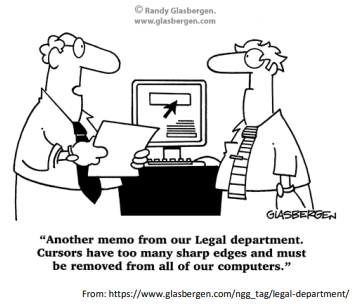Questões de Concurso Público Senado Federal 2022 para Advogado
Foram encontradas 100 questões
Certo dia, ao final das aulas, Paulo resolveu alugar uma bicicleta e tomar o caminho de casa, para ganhar tempo. Com isso, ele se encontrou com Dora após 35 minutos e os dois voltaram para casa de carro.
Paulo e Dora chegaram em casa no seguinte horário:
( ) Pode ser que Daniel fale mandarim e não fale japonês.
( ) Daniel não fala nem mandarim nem japonês.
( ) Pode ser que Daniel fale mandarim e japonês.
As afirmativas são, respectivamente
( ) Advertising firms will be majorly affected by changes in data privacy rules.
( ) Formerly, control over personal data for commercial purposes followed tight guidelines.
( ) Legislators have currently been lax on users’ assent of their data.
The statements are, respectively,
Read Text II and answer the question that follow it.
Text II

Read Text II and answer the question that follow it.
Text II

Ato contínuo, Maria apresentou questionamento a respeito da competência municipal na matéria, sendo-lhe corretamente informado que
I. em matéria criminal, há presunção iuris et iure de que a repercussão geral está presente.
II. a repercussão geral não é exigida nas causas em que a Fazenda Pública figure como parte.
III. a repercussão geral deve ser demonstrada in abstracto, não sendo necessário que a questão constitucional seja discutida no caso concreto.
Em relação às conclusões de José, à luz da sistemática vigente, é correto afirmar que
Como Pedro se tornou uma pessoa de elevado prestígio social na localidade em que reside atualmente, o conhecimento desses fatos por outras pessoas poderia abalar a sua imagem.
Por esta razão, questionou seu advogado sobre a possibilidade de o meio de comunicação digital ser judicialmente compelido a deixar de veicular a referida reportagem, sendo-lhe respondido que
Helena, apesar de jamais ter ingressado no território nacional, tinha o sonho de seguir a carreira diplomática, representando o Brasil perante outros sujeitos de direito internacional.
Ao completar dezoito anos de idade, Helena consultou um advogado a respeito da compatibilidade do seu sonho com a ordem constitucional brasileira, sendo-lhe corretamente informado que ela
Esse diploma normativo definiu o dia 20 de junho como o dia estadual dos bancários, sendo, ainda, estatuído que tal dia seria feriado para esses profissionais.
A Lei nº YY foi muito elogiada por alguns setores, mas criticada de forma veemente por outros, sendo que as reflexões sobre a competência legislativa do Estado ocupavam o centro das discussões.
Instado a se manifestar, um destacado constitucionalista observou que, à luz da sistemática constitucional, o Estado Delta
À luz da sistemática constitucional, é correto afirmar que a intervenção alvitrada
Nesse caso, é correto afirmar que o Tribunal de Contas do Estado Alfa
Por perceber que a demanda poderia ter o mesmo desfecho das demais, além de ser provável que outras ações semelhantes viessem a ser julgadas, consultou o Procurador-Geral do Município Delta a respeito da possibilidade de ser requerida, ao Supremo Tribunal Federal (STF), a edição de Súmula Vinculante que expressasse a compatibilidade da Lei municipal nº XX com a ordem constitucional.
O Procurador-Geral respondeu corretamente que o Município Delta
Apesar de a matéria já ter sido rejeitada, no ano anterior, na mesma legislatura, o grupo de senadores tinha convicção de que o ambiente político era favorável à sua aprovação.
Ao final das discussões, a proposta foi aprovada em cada Casa do Congresso Nacional, em dois turnos de votação, por três quintos dos votos dos respectivos membros, sendo a Emenda Constitucional nº XX promulgada pelas Mesas da Câmara dos Deputados e do Senado Federal, com o respectivo número de ordem.
À luz da sistemática constitucional, sobre o processo legislativo que redundou na Emenda Constitucional nº XX, assinale a afirmativa correta.
No curso do processo legislativo, foi aprovado projeto de lei de conversão, que inseriu modificações no texto inicialmente adotado pelo Chefe do Poder Executivo, o que resultou na exclusão de algumas relações jurídicas do alcance da referida Medida Provisória.
Considerando os termos dessa afirmativa, é correto afirmar que a Medida Provisória nº XX